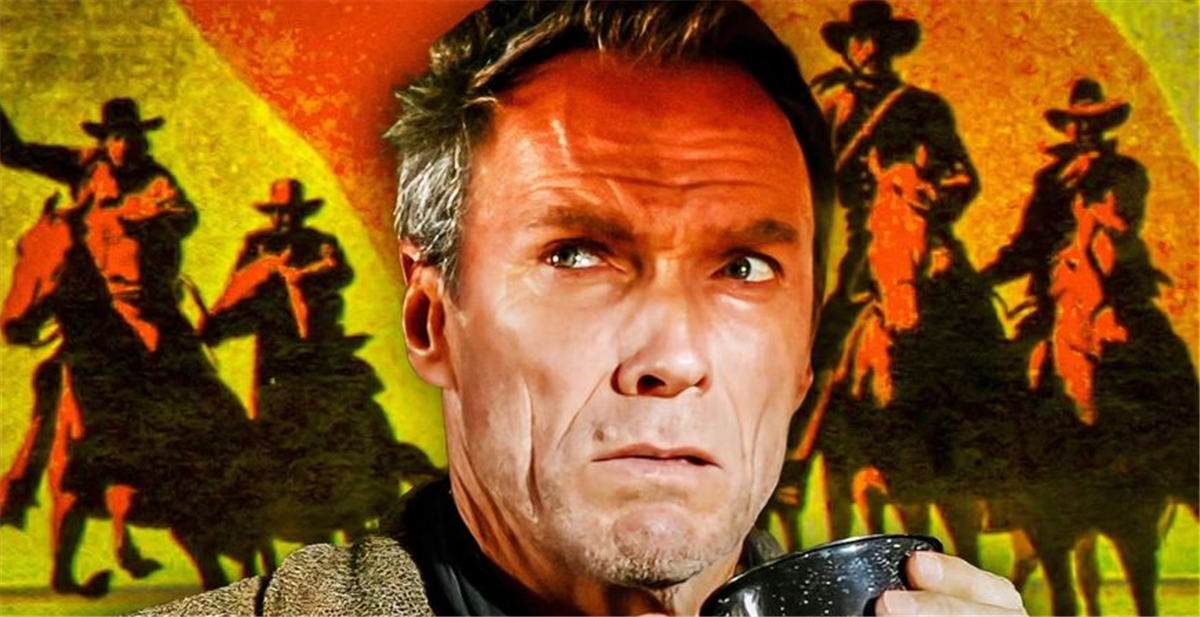Two of the best Clint Eastwood movies are so memorable in their own right that viewers may have missed that they both tell the same story but in reverse. While Eastwood is best known for appearing in Western movies, he has occasionally branched out into other genres. As an actor and director, Eastwood usually chooses to tell simple stories about complex characters, like Million Dollar Baby’s reluctant boxing coach, Frankie Dunn. Eastwood’s greatest Western characters tend to be antiheroes, and while Eastwood is instantly recognizable for delivering lines through gritted teeth, his characters are all distinct in subtle ways.
Eastwood ensures that each of his characters has a feature or characteristic that sets them apart, like The Man With No Name’s smoking habit and quiet demeanor. Even when his characters are inspired by real people, like Josey Wales, Eastwood ensures that his portrayal is both nuanced and interesting to watch onscreen. While The Outlaw Josey Wales is one of the movies that defined Eastwood’s career, Unforgiven has often been described as “the greatest Western of all time.” Both movies are Westerns in which Eastwood plays an antihero, but their similarities go much deeper than that.
The Outlaw Josey Wales And Unforgiven Tell The Same Story But In Reverse
Clint Eastwood Retired From Westerns After Directing And Starring In Unforgiven
The Outlaw Josey Wales is about an honest man who begins a gritty journey of revenge after his family has been murdered, then makes peace with his loss and becomes the center of his community. Unforgiven tells the same story as The Outlaw Josey Wales, but in reverse. Eastwood plays William Munny, who appears to be an honest man but has a dark backstory that he is unable to escape in the end. What happened to his characters in both movies draw some interesting parallels to each other.

Widely considered to be Eastwood’s best movie and last Western, Unforgiven reinvented the Western, taking its themes like cowboys, justice, and revenge, and putting a new spin on them. The end of Unforgiven lives up to its title, as Eastwood’s character does not find redemption but appears to return to his old outlaw ways. Eastwood may have retired from the Western genre, but he approaches all his characters in the same way that he did his gritty antihero archetypes: by making each one distinctly different.
Clint Eastwood Has A Skill For Transforming One Archetype Into Distinct Characters
The Outlaw Josey Wales Is Different From Many Of Eastwood’s Western Characters
When Sergio Leone cast Eastwood as The Man With No Name in his movie A Fistful of Dollars, he said “Eastwood, at that time, only had two expressions: with hat and no hat.” However, while Eastwood’s stern portrayal of the character may have been the blueprint for many of his later Western roles, Eastwood added his creative input, asking for fewer lines to keep the character mysterious. If Eastwood gets criticism, it is often for playing the same character. However, this is not quite true. Eastwood has mostly played antiheroes since his heroic Rawhide role, but the details he adds turn the antihero archetype into different characters.
Many of Eastwood’s Western movies have excellent shootouts, as he tends to play stern, hardened gunslingers with a strong sense of justice. However, Josey Wales was different from most of Eastwood’s other Western roles, as he was loosely based on a real person. The outlaw “Bushwhacker Bill Wilson” inspired the character of Josey Wales, who first appeared in the 1972 novel Gone To Texas. Eastwood used elements of the novel to create his version of Wales, which included his distinctive accent. Clint Eastwood may no longer be making Westerns, but his experience turning archetypes into unforgettable characters began with them.
